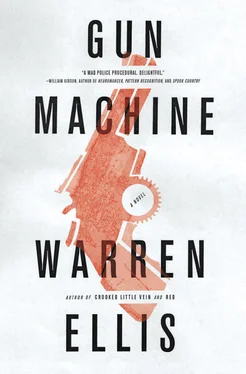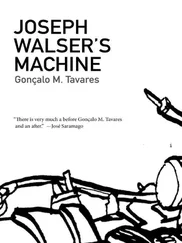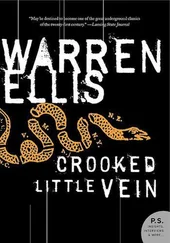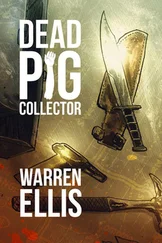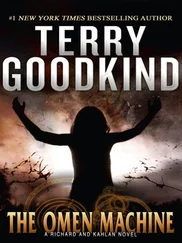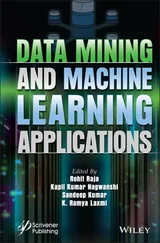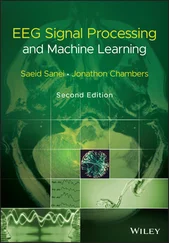She paid cash, which was taken from a tooled leather cylinder held in the crook of her right arm, no bigger than it needed to be for a billfold, credit cards, phone, and car keys. As she turned, Tallow saw the brooch at her breast, a disc of rough animal hide on a gold mount, a gold image of an elk head in its center, framed by two gold feathers. She saw him looking, brushed it with compulsive fingers, false nails tapping on the gold, and left. He noticed her wedding band looked a little big on her finger.
“Three of the steak sandwiches, please.”
“Coming up,” said Beard Number One, nodding to Beard Number Two, never once looking at Tallow. Together, they cut and smashed and wrapped the sandwiches in maybe twenty seconds. They’d gotten faster. Judging by the previous customer, Tallow thought word had really gotten around about the place. He imagined the pair training at night, listening to Animal Collective on repeat as they beat sandwiches into shape, racing against the same stopwatch they used to time their beard trimming.
Tallow paid his money, took his sandwiches under one arm, and heard the scream.
The woman in the black jacket was crouching on the sidewalk in front of the SUV and screaming as the man in the bowler hat stood over her waving his arms and wailing like a baby.
Tallow shifted the sandwiches to his left arm and shouted at the man in the hat to get his attention. The man turned and looked. Tallow very deliberately opened his jacket to show the man his gun. The man saw the gun. He stopped wailing.
“I just asked her for a light. She started crying. I figured crying was the thing to do today.”
“Get out of here. I’m not making the offer twice.”
The man ran down the street and away, clutching his hat with both hands.
Tallow sighed, looked around, and rested his sandwiches on the hood of the SUV. Good police never showed their guns unless they had to, he knew, but it was quick and easy and it worked. He’d bitch at himself later. The woman was rocking and sobbing now, wheezing, no air left in her lungs for screaming.
Tallow’s empathy extended to reading a situation and not a hell of a lot further. He had known that Bobby Tagg was in extreme distress and in the midst of a psychological break, but he very probably would not have been able to successfully extend comfort and calm to the man. Jim Rosato was a blunt object of a police, but people just naturally liked him better. It was why, Tallow thought, they’d made a good team.
Tallow had a sudden sour memory of the lieutenant suggesting that Tallow had been deluded about that.
He crouched down next to the woman. “It’s okay, ma’am. I’m a police officer. He’s gone. Can you tell me what happened?”
She folded her arms over her head and rocked, choking out the words “I thought it was him” over and over again.
Tallow said, “It’s okay, ma’am,” and experimentally put his hand on her shoulder. She shrieked and jerked away with terrified revulsion, almost fell over, and started coughing as well as crying. Being strangled by her own throat muscles and fluids seemed to pull her out of the fugue. She wobbled on her haunches, those strange golden heels pushing around on the sidewalk for purchase. He touched her again, under her forearm this time, softly. She turned her gold-framed black shades to him, and she allowed him to gently guide and support her to a standing position. She started sobbing again, and fell into him. He put an alien arm around her somehow, and looked at the ground. Her cylindrical purse was on the sidewalk, unopened, next to her wrapped sandwich. He strained a bit and put out a foot to the purse, rolled it closer to him.
“I’m sorry,” the woman said to his chest, sounding a million miles away.
“It’s okay,” he said.
“It’s not,” she said, scrabbling for an unconstricted breath. “He just asked me for a light. But I saw the, the feathers, and his clothes, and…” She broke into tears again, but the crying was cleaner now, more flowing, more purging. She was crying herself out, coming back to herself.
“What’s your name, ma’am?”
“Emily.” Her hands were shaking epileptically, and his arm was providing less emotional support than physical—he realized he was doing most of the work of holding her up.
“Let me get you sat down,” he said, and shuffled her with difficulty toward his car. His spine popped as he reached down to unlock the driver-side door. He swung it open and lowered her sideways onto the seat.
“One second,” he said, and swept up her purse and sandwich, reclaimed his own purchases, opened the rear door, and put his (and he had to ask himself, What was wrong with him that he was treating three sandwiches like fragile treasure?) precious food on top of the laptop bag. When he turned back to her, she’d fumbled her shades off and managed to stuff them in one pocket of her jacket. Emily did not have the eyes of someone who slept peacefully or often.
“Oh God,” Emily croaked, “look at my hands.” The veins on the backs were standing up like cables, and her hands were shaking so hard they almost blurred.
Tallow gave her her purse. She took it with difficulty, but held on to it. Tallow watched. The shaking diminished, but it didn’t go away. He hunkered down by her side, leaning on the car. “Can you take another shot at telling me what happened, Emily?”
He was oddly saddened to see deception crawl across her eyes like rainclouds.
“I, I don’t really know,” Emily said. “I haven’t been, I guess, I haven’t been well for a while. A, um, I’m not sure what you’d call it, an emotional problem, mental issues, I don’t know, anything I say makes me sound crazy, right? Things just get on top of me sometimes. I get frightened easily, maybe? And that man. He just. Wrong moment.”
She looked down at her brooch and plucked at it with hate, giving a laugh and a sob all in one horrible heartbroken sound. “And this stupid thing, it doesn’t…”
She looked at him, and caught herself. “…doesn’t matter.”
Tallow indicated her purse. “You have your phone in there?”
She nodded, unzipped, and produced it. The phone was very new, a model he’d only read about: just a thin slice of flexible, scratchproof plastic with an artful streamer of antenna wire baked into the back.
“We get given prototypes by phone companies,” Emily said, by way of explanation or apology.
“What’s your husband’s name?” he asked, taking the phone.
“Jason. Jason Westover,” she mumbled.
He opened the phone’s contacts, found the name Jason, and pressed Call. The warmth of his hand activated something in the phone’s structure, and it curled in his grip, taking on the curve of an old-style handset.
“Yes, Em, what is it,” said a tired man’s voice. Not a question; more a resigned statement.
“This is Detective Tallow, NYPD. Is this Mr. Westover?”
“Oh. Oh Christ.”
“It’s all right. Everything’s okay. Am I speaking with Jason Westover?”
“Yes. Yes. I didn’t—”
“It’s all right, sir. I’m with your wife. She’s had a bad scare, and I don’t judge her fit to drive home safely. She’s very shaken up. If you can let me know where you live and arrange to meet me there, I’d appreciate it.”
“Oh. Oh, I see,” Westover said. “Yes. Of course. Thank you. We live at the Aer Keep. I’ll head home as soon as I can and meet you in the main foyer. What about the car?”
“It’s locked and I have the keys. I realize it’s inconvenient—”
“No, no, don’t worry. I’ll have someone come home with me, and I’ll give them the keys and have them pick the car up. Where is it?”
Tallow gave him the address and listened to the scratching of Westover writing it down with a very sharp pencil on paper with a rich tooth.
Читать дальше
